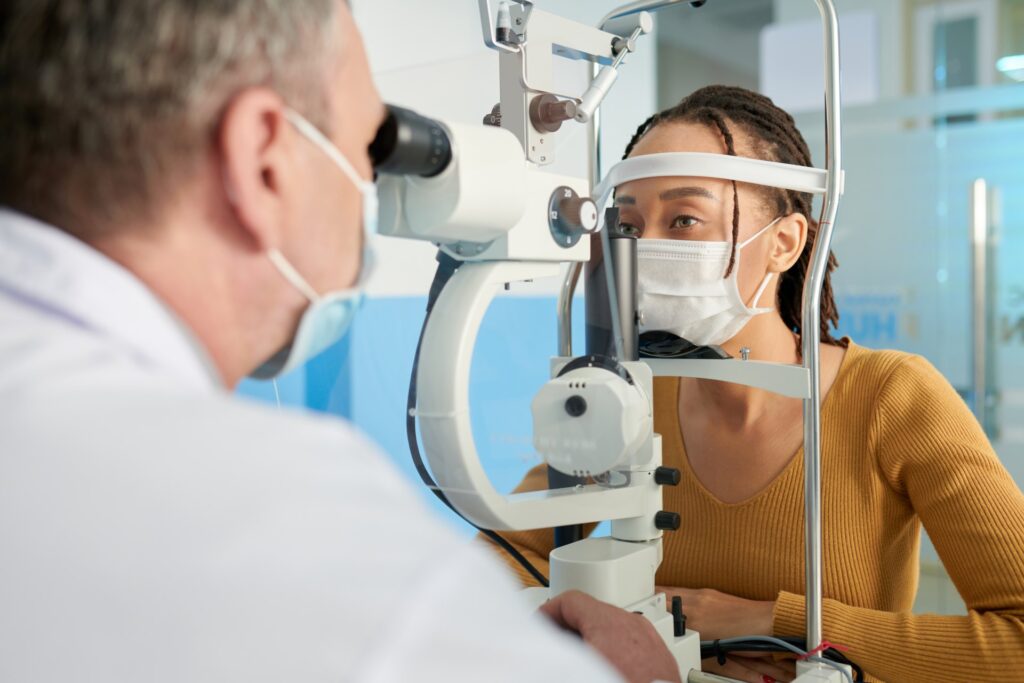
Introduction to Optometric Care
Maintaining a good vision is essential for a happy and fulfilled life. Optometric care plays a significant role in detecting and treating eye conditions early. Routine visits to professional eye doctors Lower Sackville offer more than just clearer vision; they provide overall health benefits, too. Eye exams can reveal early signs of systemic conditions like diabetes and hypertension. These conditions often manifest subtle changes in the retina and vascular structures of the eyes, and early detection can be crucial for managing these diseases effectively. Therefore, integrating eye care into your overall health routine isn’t just beneficial—it’s essential.
Importance of Regular Eye Exams
Regular eye exams are crucial for everyone. They help detect vision problems early, even before symptoms arise. Conditions like glaucoma, cataracts, and age-related macular degeneration can progress unnoticed without regular check-ups. The American Academy of Ophthalmology underscores that early detection and treatment of these conditions can prevent significant vision loss and improve the quality of life. Other medical conditions, including excessive blood pressure, high cholesterol, and even brain tumors, can be discovered during an eye check. These conditions might reveal themselves through retinal blood vessel changes, optic nerve irregularities, or other ocular abnormalities that are noticeable only through a thorough eye examination.
Common Vision Problems and How They Are Treated
Many people experience vision issues such as myopia (nearsightedness), hyperopia (farsightedness), astigmatism, and presbyopia. Treatment options range from corrective lenses like glasses and contact lenses to advanced surgical procedures. LASIK surgery, for instance, offers a permanent solution and has a high success rate for correcting refractive errors. Additionally, ortho-k or orthokeratology provides a non-surgical alternative that uses specially designed contact lenses to reshape the cornea overnight, temporarily correcting myopia for the following day. The diversity of treatments ensures a suitable option for every individual, significantly improving their quality of life.
Preventive Measures for Eye Health
Prevention is better than cure, which also applies to eye health. Simple practices such as wearing UV-protective sunglasses, reducing screen time, and quitting smoking can go a long way in preserving vision. The Centers for Disease Control and Prevention (CDC) provides extensive guidelines on how to protect and maintain eye health. For instance, taking regular breaks using the 20-20-20 rule (every 20 minutes, take a 20-second break and look at something 20 feet away) can reduce digital eye strain. Using appropriate lighting when reading or working on a computer can minimize eye fatigue and prevent long-term damage.
Diet and Nutrition
A balanced diet plays a crucial role in maintaining eye health. Foods rich in vitamins A, C, and E and minerals like zinc are particularly beneficial for the eyes. Carrots are well known for their high beta-carotene content, which converts to vitamin A and supports good vision. Leafy greens, including kale and spinach, are rich in antioxidants called lutein and zeaxanthin, which can help prevent cataracts and macular degeneration. Fish rich in omega-3 fatty acids, such as salmon, are essential for retinal function and may help stave off diseases, including macular degeneration and dry eye syndrome. Consuming various fruits, vegetables, and lean proteins ensures a well-rounded nutrient intake to support eye health.
Choosing the Right Optometrist
Selecting the right optometrist is vital for effective eye care. Look for professionals who have strong credentials and positive patient reviews and who use modern diagnostic tools. Getting personal referrals from friends and family can be very helpful in locating a trustworthy eye care specialist. Choosing an optometrist who offers comprehensive services, from routine eye exams to specialized treatments for various eye diseases, is important. Ensure the clinic follows up-to-date practices and provides a welcoming and professional environment. Doing thorough research and selecting a qualified optometrist guarantees you receive the best care for your eyes.
Technological Advancements in Optometry
The field of optometry has been greatly improved by technological developments. A variety of eye disorders can be accurately and early identified thanks to the comprehensive retina images produced by devices like Optical Coherence Tomography (OCT) and digital retinal imaging. AI-driven diagnostic systems are making strides in identifying patterns and anomalies that might go unnoticed by the human eye, improving the diagnostic process. These technologies improve diagnostic accuracy and enhance treatment outcomes, making eye care more effective and efficient. With continuous innovations, the future of optometry looks promising, offering even more precise and less invasive methods for maintaining eye health.
Conclusion
Taking care of your eyes is essential for a happy and healthy life. Regular optometric visits help in early detection and treatment of eye conditions, ensuring better vision and overall health. You can enjoy long-term eye health by incorporating regular eye exams, maintaining a nutritious diet, and adopting preventive measures. Technological advancements in optometry aid in accurate diagnosis and effective treatment, making good vision accessible to all. Make a wise decision today to prioritize your eye health and, in doing so, enhance the quality of your life significantly.






